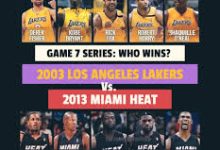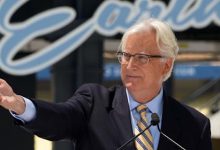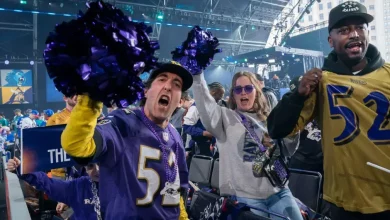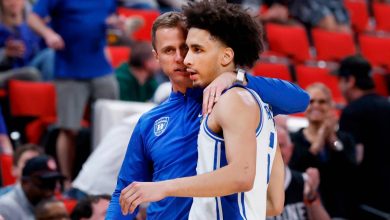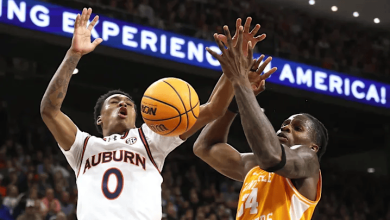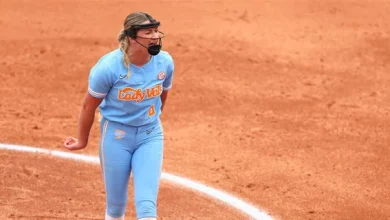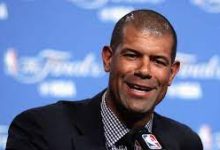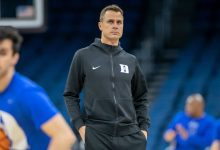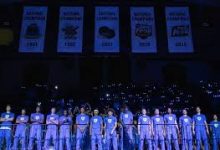A Look Back at the 1992 Duke Basketball Roster: The Dream Team .
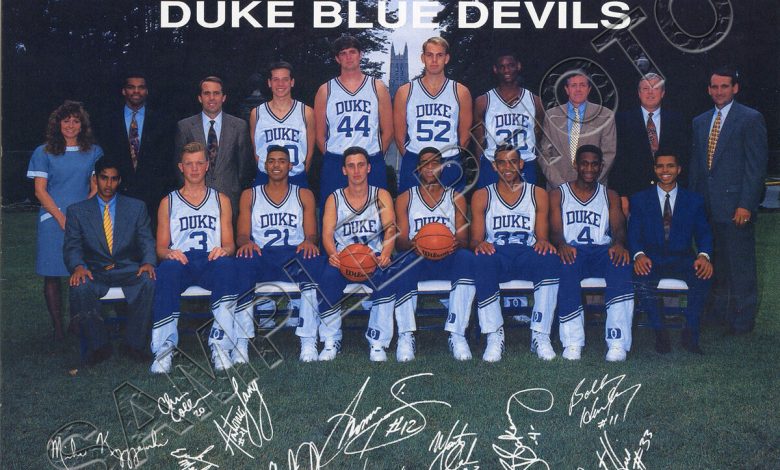
The 1991‑92 Duke Blue Devils men’s basketball team stands as one of the most iconic squads in NCAA history—a roster steeped in star power, veteran poise, and championship pedigree. Under the steady leadership of Coach Mike Krzyzewski in his 12th season, Duke captured its second straight national title, marking a historic repeat last achieved over two decades earlier by UCLA’s dynasty . Finishing with an overall record of 34–2 (14–2 ACC), the Blue Devils claimed both the ACC regular-season and tournament crowns before dominating March Madness and ultimately besting the University of Michigan’s “Fab Five” 71–51 at the Metrodome in Minneapolis .
At the core of this team was Christian Laettner—an all-American senior whose legendary legacy includes earning virtually every major national player award: the Wooden, Naismith, Oscar Robertson as well as consensus All‑American honors . He averaged 21.5 points and 7.9 rebounds per game and etched his name in NCAA lore with his perfect 10‑for‑10 performance in the iconic overtime win against Kentucky in the East Regional Final . Capturing the ACC Player of the Year, his résumé remains a towering pillar in collegiate basketball history.
Supporting Laettner was an elite supporting cast headlined by Bobby Hurley, the electric junior point guard. Hurley led the ACC in assists, recorded 7.6 assists per game, and still holds Duke’s single-game assist record of 16. His court vision and composure earned him Final Four Most Outstanding Player honors . Equally noteworthy was sophomore Grant Hill, fresh off a sensational freshman campaign, putting up 14 points, 5.7 rebounds, and 4.1 assists per game. His two-way game brought versatility and youthfulness to the lineup .
The frontcourt was deep with talent. Senior Thomas Hill averaged 14.6 points per game, anchoring the off-guard spot . Brian Davis, a junior wing, chipped in 11.2 points per game and eternal hustle . Supporting role players included Antonio Lang, freshman Cherokee Parks, and reserve big Erik Meek—each offering size, defense, and developmental upside .
What set this team apart was the proven chemistry and clutch performance of veterans. From the season-opening exhibition game against the Soviet Select to maintaining the No. 1 AP ranking from start to finish (a testament to consistency rarely achieved), Duke showcased resilience and control . Their only regular-season losses were close contests: a 75–73 heartbreaker at UNC and a 72–68 game against Wake Forest . Yet they rebounded by defeating UNC 94–74 in the ACC Tournament final to seal home-court momentum .
March brought legendary moments, beginning with Grant Hill and Laettner’s masterful orchestration of the memorable Kentucky overtime thriller, where “Saturday’s heroes became Monday’s legends” . They continued the momentum by defeating Indiana before meeting the Fab Five. In Minneapolis, veteran savvy and disciplined defense turned the tide, resulting in a convincing title game win. Hurley earned game MVP honors, Laettner’s presence was imposing, and Coach K became just the second coach in history to win back-to-back titles �“ the first since entrenched Bruins mentor John Wooden .
Beyond NCAA glory, Laettner was the only college player selected to join the Dream Team at the 1992 Barcelona Olympics. Coach K served as assistant to Chuck Daly, and Laettner’s fundamental excellence earned him a spot on the all-time greatest basketball team . He averaged 4.8 points per game across eight games, shooting an impressive .900 from the free‑throw line .
The roster’s depth went far beyond individual stars. Thomas Hill provided perimeter stability, Davis brought bench relief, Lang patrolled the late-game defense, and Parks and Meek offered long-term promise. Their collective balance between upperclassmen and emerging talent sustained Duke’s dominance across seasons .
Culturally, the 1992 team embodied Duke’s reputation for discipline, integrity, and basketball intelligence. Critics dubbed Coach K’s teams as overly rigid, but the results spoke volumes: 100-plus wins over four years, three straight Final Fours, and a coach in Krzyzewski, later dubbed Naismith Coach of the Year . They were neither flamboyant nor reckless, but instead efficient, unified, and relentless.
The post‑1992 journey offers its own narrative. Hurley went on to become NCAA’s career assists leader and earned a spot in Duke’s Hall of Fame . Grant Hill blossomed into one of the NBA’s most complete wing players. Laettner won a spot in the Naismith Hall of Fame and forever became emblematic—admired by fans of Duke and reviled in Carolina—for his brash brilliance . Outsiders may have criticized Duke, but by any measurement—titles, legacy, impact—the ’92 team endures as a standard of collegiate excellence.
In retrospect, the 1992 Blue Devils represent more than a run of victories—they were a blueprint for program mastery. They balanced iconic talent with team-first ethos, culminating in NCAA and Olympic triumph. Their season remains a lasting legacy in college basketball’s storied history, and their cultural footprint—sparked by clutch shots, disciplined play, and unshakeable resolve—continues to define Duke’s identity for generations to come.

